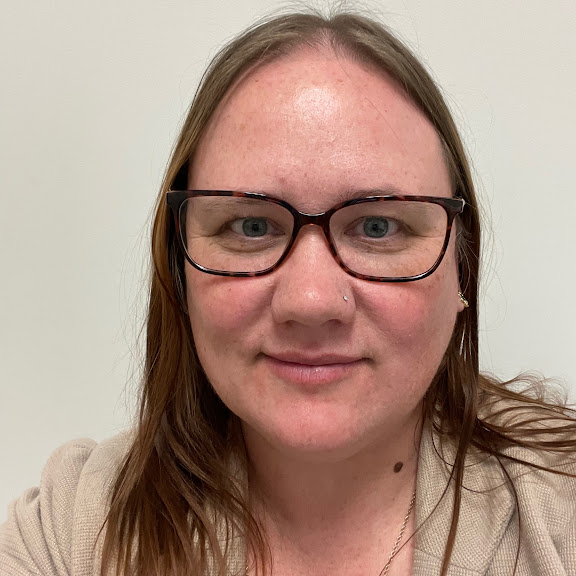Computer Science (CS) education is essential in preparing students for the future, yet rural communities often face significant barriers to accessing high-quality CS instruction. In Maine, a growing movement is bringing together educators and nonprofit organizations to tackle these challenges and expand opportunities for both students and teachers. Through strategic partnerships, Maine teachers are collaborating with nonprofits like Educate Maine to enhance CS education initiatives, provide professional development, and foster equitable access to computing skills.
The Power of Partnerships
One of the key drivers of CS education in Maine is the collaborative effort between teachers and nonprofits. Organizations like Educate Maine, in partnership with local schools and educators and Maine CSTA members, are providing essential support, from consulting on district-wide SCRIPT/CS visioning and K-12 pathway planning, and curriculum resources to hands-on training. These partnerships ensure that rural schools, often limited by funding or staffing constraints, receive the necessary resources and expertise to deliver robust CS programs.
A notable example is the CS Summer of Fun PD Week, which connects teachers with training opportunities tailored to their specific needs. Educate Maine, Maine Mathematics and Science Alliance and other nonprofit organizations work closely with teachers to offer workshops, mentorship, and networking events that empower educators to integrate CS into their classrooms effectively.
“The SCRIPT Workshop emphasizes the critical need for computer science and computational thinking skills but also highlights meaningful connections to our district’s broader initiatives and goals, fostering innovation and interdisciplinary learning,” stated Crystal Burns, grade 6 math/science teacher at Mattanawcook Junior High School in Lincoln, Maine.
Overcoming Barriers in Rural Districts
Rural schools often struggle with limited access to CS education due to geographical isolation, a shortage of trained teachers, and resource constraints. To address these challenges, nonprofits are stepping in with innovative solutions:
- Remote and Hybrid Training Models: Virtual PD sessions ensure that teachers in the most remote areas can access high-quality training without extensive travel.
- Industry and Higher Education Partnerships: Collaborations with Maine-based companies and universities provide teachers with real-world CS experiences and career pathways. One new initiative is the CS Connected Learning Experience (CSCLE) which coordinates visits at Maine companies to uncover the hidden CS and computational thinking at businesses.
- Grant and Funding Support: Nonprofits help schools access funding opportunities for technology resources, curriculum, and professional learning opportunities.
Empowering Educators to Lead the Way
Maine’s educators play a crucial role in bringing CS education to life in rural schools. Teachers who participate in nonprofit-supported programs become champions of CS learning, sharing their knowledge with colleagues and inspiring students to explore computing careers. Many have taken on leadership roles, advocating for CS curriculum adoption and influencing local education policy to prioritize computer science.
For instance, the CSforALL SCRIPT workshops for districts and the Code.org Professional Learning Program—supported by Educate Maine—have equipped teachers with the tools and confidence to bring coding into their classrooms, regardless of their prior experience with CS. Through peer mentoring and community-building, educators are creating sustainable CS learning ecosystems within their districts.
Looking Ahead: Expanding Impact and Equity
The collaboration between Maine teachers and nonprofits has already made significant strides in CS education, but there is still work to be done, as we learned at our inaugural Maine CS Education Summit. Our summit proceedings can be reviewed here. Moving forward, expanding access to CS education in rural communities will require continued investment, policy support, and innovation.
By strengthening partnerships and amplifying the voices of educators, Maine is setting an example of how rural states can overcome barriers to CS education. With sustained commitment, every student—regardless of zip code—can have the opportunity to develop critical computing skills that will prepare them for the future.
This movement underscores the importance of collective action in addressing educational disparities. By working together, teachers and nonprofits are ensuring that Maine’s rural communities are not left behind in the digital age.
About the Authors

Angela Oechslie leads Educate Maine’s Project>Login program. Angela has a background in economic and workforce development and has worked on several jobs-related federal grant programs. Angela is a member of Maine Technology Institute’s IT Tech Board, a Microsoft TechSpark Fellow, and she also serves as a SCRIPT Steering Committee member for CSforALL. She enjoys hiking, camping, and kayaking across Maine.

Crystal Burns is a sixth-grade math and science teacher at Mattanawcook Junior High School in Lincoln, Maine, with a background in Elementary and Secondary Education and a master’s in Educational Technology. Previously, Crystal taught ELA and Social Studies for four years. She serves as the Vice President of the CSTA Maine Chapter, leads the school’s coding club, supports robotics competitions, and provides technology-focused professional development.

